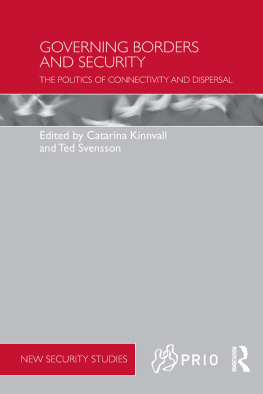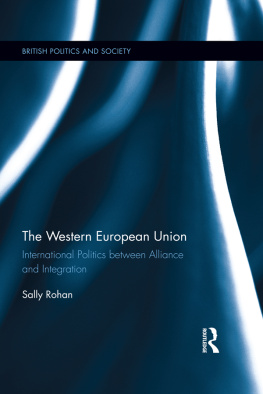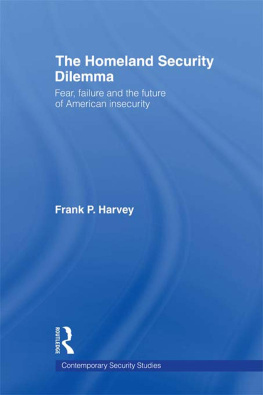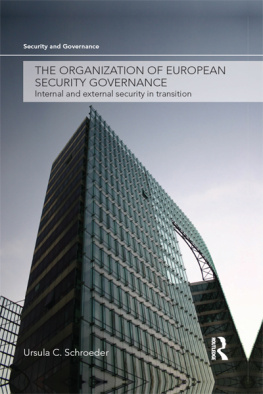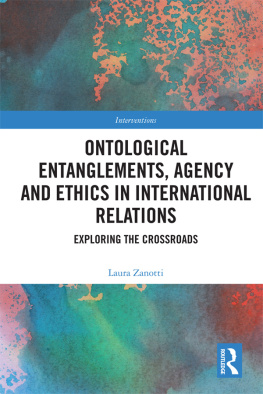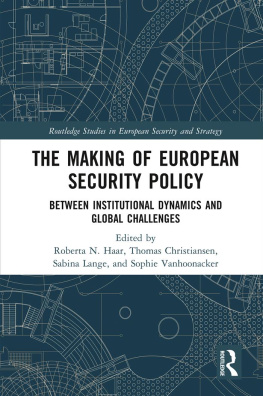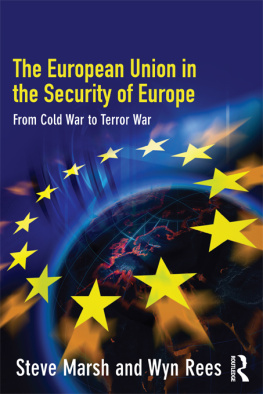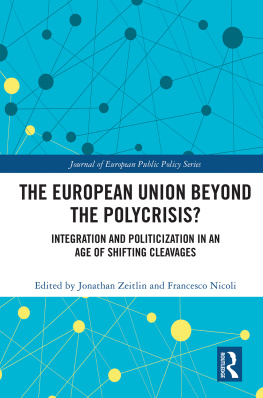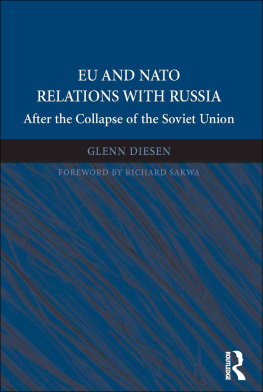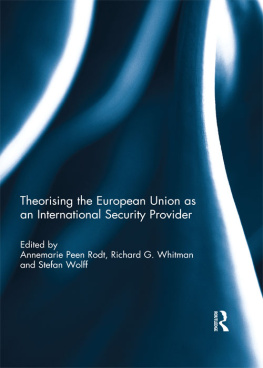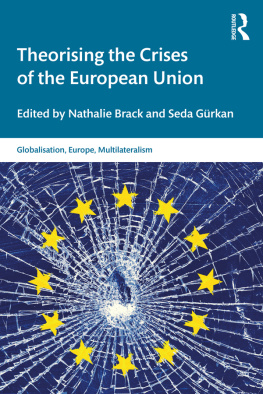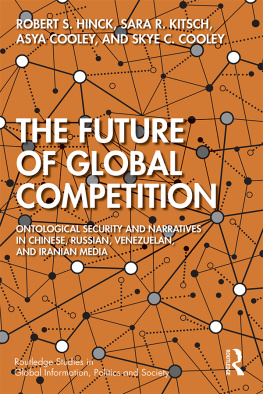Ontological Insecurity in the European Union
The European Union (EU) faces many crises and risks to its security and existence. While few of them threaten the lives of EU citizens, they all create a sense of anxiety and insecurity about the future for many ordinary Europeans. This comprehensive volume explores the concept of ontological security which was introduced into international relations over a decade ago to better understand the security of being found in feelings of fear, anxiety, crisis, and threat to well-being. The authors make use of this concept to explore how narratives of European integration have been part of public discourses in the post-war period and how reconciliation dynamics, national biographical narratives, and memory politics have been enacted to create ontological security. Within this context, they also discuss the anxiety of the remainers in the Brexit referendum and the consequences of its failure to address the ontological anxieties and insecurities of remain voters. The book also explores the following: how European security firms market ontological security and provide an ontological security-inspired reading of the EUs relations with post-communist states, the EU and NATOs engagement with hybrid threats, and the EU as an anxious community.
This book was originally published as a special issue of the journal European Security.
Catarina Kinnvall is a Professor of Political Science at Lund University, Sweden. Her research is focused on global security, migration, religion, and nationalism, with a particular emphasis on South Asia and Europe.
Ian Manners is a Professor in the Department of Political Science at the University of Copenhagen, Denmark. His research interests lie at the nexus of critical social theory and the study of the European Union in planetary politics, including global society, economy, environment, conflict, and politics.
Jennifer Mitzen is an Associate Professor of Political Science at The Ohio State University, Columbus, USA, with research interests in international relations theory, global governance, and international security.
First published 2020
by Routledge
2 Park Square, Milton Park, Abingdon, Oxon, OX14 4RN
and by Routledge
52 Vanderbilt Avenue, New York, NY 10017
Routledge is an imprint of the Taylor & Francis Group, an informa business
2020 Taylor & Francis
2018 Elke Krahmann. Originally published as Open Access.
With the exception of , please see the chapters Open Access footnote.
Trademark notice: Product or corporate names may be trademarks or registered trademarks, and are used only for identification and explanation without intent to infringe.
British Library Cataloguing-in-Publication Data
A catalogue record for this book is available from the British Library
ISBN13: 978-0-367-20953-7
Typeset in Myriad Pro
by codeMantra
Publishers Note
The publisher accepts responsibility for any inconsistencies that may have arisen during the conversion of this book from journal articles to book chapters, namely the inclusion of journal terminology.
Disclaimer
Every effort has been made to contact copyright holders for their permission to reprint material in this book. The publishers would be grateful to hear from any copyright holder who is not here acknowledged and will undertake to rectify any errors or omissions in future editions of this book.
The chapters in this book were originally published in the journal European Security, volume 27, issue 3 (September 2018). When citing this material, please use the original page numbering for each article, as follows:
Chapter 1
Introduction to 2018 special issue of European Security: ontological (in)security in the European Union
Catarina Kinnvall, Ian Manners and Jennifer Mitzen
European Security, volume 27, issue 3 (September 2018) pp. 249265
Chapter 2
Narrating Europe: the EUs ontological security dilemma
Vincent Della Sala
European Security, volume 27, issue 3 (September 2018) pp. 266279
Chapter 3
Breaking with Europes pasts: memory, reconciliation, and ontological (In)security
Bahar Rumelili
European Security, volume 27, issue 3 (September 2018) pp. 280295
Chapter 4
Political memory, ontological security, and Holocaust remembrance in post-communist Europe
Jelena Subotic
European Security, volume 27, issue 3 (September 2018) pp. 296313
Chapter 5
Socio-psychological reactions in the EU to immigration: from regaining ontological security to desecuritisation
Tal Dingott Alkopher
European Security, volume 27, issue 3 (September 2018) pp. 314335
Chapter 6
Brexit, existential anxiety and ontological (in)security
Christopher S. Browning
European Security, volume 27, issue 3 (September 2018) pp. 336355
Chapter 7
The market for ontological security
Elke Krahmann
European Security, volume 27, issue 3 (September 2018) pp. 356373
Chapter 8
Countering hybrid warfare as ontological security management: the emerging practices of the EU and NATO
Maria Mlksoo
European Security, volume 27, issue 3 (September 2018) pp. 374392
Chapter 9
Anxious community: EU as (in)security community
Jennifer Mitzen
European Security, volume 27, issue 3 (September 2018) pp. 393413
For any permission-related enquiries please visit: http://www.tandfonline.com/page/help/permissions
Christopher S. Browning is a Reader in Politics and International Studies at the University of Warwick, Coventry, UK, and a Visiting Professor at the University of Oslo, Norway. His research is centred on identity politics, critical approaches to security, and (critical) geopolitics.
Vincent Della Sala is an Associate Professor of Political Science in the Department of Sociology and Social Research at the University of Trento, Italy, and an Adjunct Professor at SAIS Europe of the Johns Hopkins University, Baltimore, USA. His current research examines narratives and political myths of European integration.
Tal Dingott Alkopher is a Lecturer in the Department of International Relations at the Hebrew University of Jerusalem, Israel. Her spheres of expertise include constructivism, European security, and the nexus security and immigration.
Catarina Kinnvall is a Professor of Political Science at Lund University, Sweden. Her research is focused on global security, migration, religion, and nationalism, with a particular emphasis on South Asia and Europe.
Elke Krahmann is a Professor and Chair of International Relations at the University of Kiel, Germany. She has published widely on the transformation of national and international security governance.


